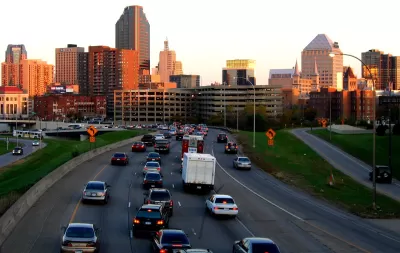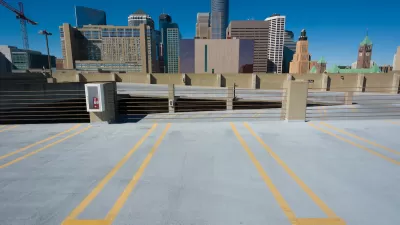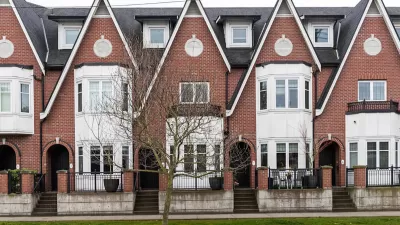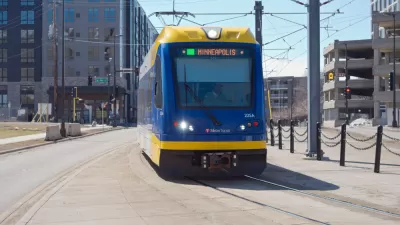Cities around the country are eliminating parking minimums in an effort to reduce the costs of housing construction and encourage car-free living.

With both Minneapolis and St. Paul abolishing minimum parking requirements, writes Kea Wilson, "the Twin Cities region is now the largest metro in the U.S. to introduce the progressive reform. The smaller communities of Buffalo and Hartford both made the move in 2017, and hundreds of other smaller municipalities have eliminated minimums in designated districts."
Minimum parking requirements, which are often blamed for raising the cost of housing construction, were also identified by Minneapolis "as a barrier to achieving its goal of reducing greenhouse gas emissions 80 percent by 2040." More recently, "the city of St. Paul said it would 'fully eliminate off-street parking minimums for real estate developments … modernizing [their] zoning codes and aligning them with best practices for land use while reducing administrative burdens for small businesses and developers.'"
Wilson highlights four key takeaways that can help advocates in other cities achieve similar success.
- "Make parking policy personal" by reaching out to local stakeholders and policymakers.
- Organize tirelessly.
- Show positive examples from other cities.
- Take the plunge.
Because eliminating parking minimums still gives developers the option to build as much parking as they want, "the reform should be a low bar to clear." According to St. Paul Council Member and car-free commuter Mitra Jalali, "[c]ities should just do this. Just do it! It really can be that simple."
FULL STORY: How the Twin Cities Abolished Parking Minimums (And How Your City Can, Too)

Study: Maui’s Plan to Convert Vacation Rentals to Long-Term Housing Could Cause Nearly $1 Billion Economic Loss
The plan would reduce visitor accommodation by 25,% resulting in 1,900 jobs lost.

North Texas Transit Leaders Tout Benefits of TOD for Growing Region
At a summit focused on transit-oriented development, policymakers discussed how North Texas’ expanded light rail system can serve as a tool for economic growth.

Using Old Oil and Gas Wells for Green Energy Storage
Penn State researchers have found that repurposing abandoned oil and gas wells for geothermal-assisted compressed-air energy storage can boost efficiency, reduce environmental risks, and support clean energy and job transitions.

Santa Barbara Could Build Housing on County Land
County supervisors moved forward a proposal to build workforce housing on two county-owned parcels.

San Mateo Formally Opposes Freeway Project
The city council will send a letter to Caltrans urging the agency to reconsider a plan to expand the 101 through the city of San Mateo.

A Bronx Community Fights to Have its Voice Heard
After organizing and giving input for decades, the community around the Kingsbridge Armory might actually see it redeveloped — and they want to continue to have a say in how it goes.
Urban Design for Planners 1: Software Tools
This six-course series explores essential urban design concepts using open source software and equips planners with the tools they need to participate fully in the urban design process.
Planning for Universal Design
Learn the tools for implementing Universal Design in planning regulations.
Ascent Environmental
Borough of Carlisle
Institute for Housing and Urban Development Studies (IHS)
City of Grandview
Harvard GSD Executive Education
Toledo-Lucas County Plan Commissions
Salt Lake City
NYU Wagner Graduate School of Public Service





























